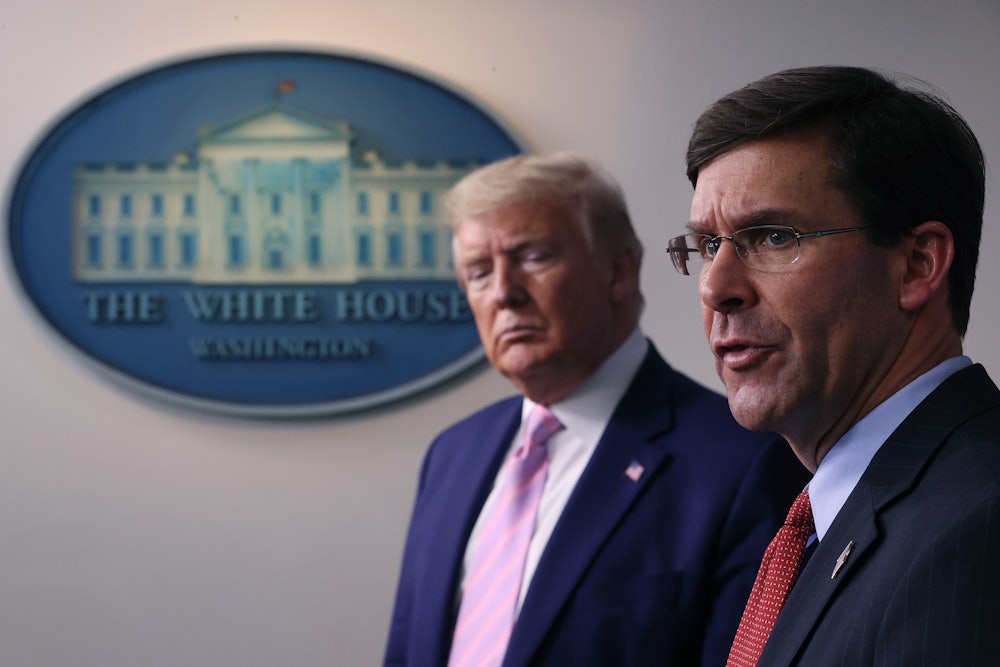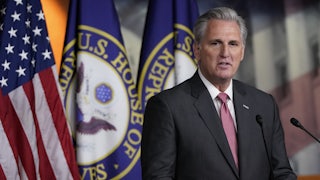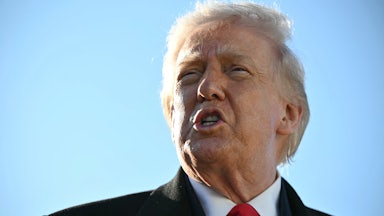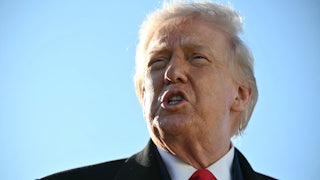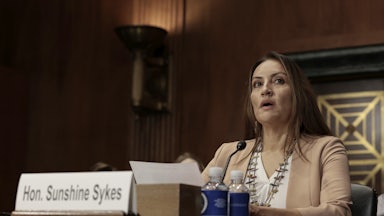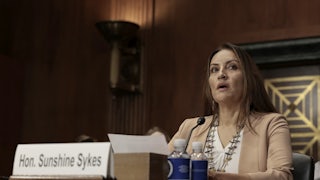In a recent interview, Mark Esper, who served as secretary of defense from July 23, 2019, to November 9, 2020, described Donald Trump as a “person driven by self-interest.” This is exactly the kind of clueless comment for which the phrase “the pot calling the kettle black” was invented: The only reason Esper was being interviewed in the first place is that he recently published a book that was written purely for reasons of self-interest (whether he knows or will admit it or not).
Esper’s A Sacred Oath is just the latest in a long line of insider accounts about Donald’s attacks on the Constitution by former members of the executive branch. Part rehabilitation tour and part revisionist history, in which the author plays the role of “only adult in the room” and savior of democracy, there have been several since the publication of John Bolton’s The Room Where It Happened in early 2020. Bill Barr’s recent effort was probably the most repulsive example of a Cabinet member’s attempt not simply to ignore their own wrongdoing (including their willingness to stay silent about the wrongdoing of others) but to cast themselves as the hero of the story. Without their presence in the administration, we are meant to believe, Donald would have been so much worse.
According to Esper, in June 2020, Donald wanted to put 10,000 soldiers on the streets of Washington, D.C., during the protests in response to George Floyd’s murder, saying directly to Esper, “Can’t you just shoot them? Just shoot them in the legs or something?” Esper’s boss openly speculated about bombing drug cartels in Mexico, apparently not understanding—and then not caring—that this would be an act of war. The United States could simply deny responsibility, Donald suggested.
Esper didn’t speak out immediately after the election was over, he claims, because the election was over. He, like Republican leadership in Congress, assumed Donald would challenge the results of the election through the usual (legal) means and it would all be over in a few weeks. But it wasn’t over in a few weeks. Donald continued to spread his Big Lie. In large part because there was no pushback by those in a position to make a difference and because any revelations germane to Donald’s unhinged postelection behavior were kept under wraps, increasing numbers of Republicans started backing his lies. All of this led inexorably to the insurrection on January 6, 2021. Esper could have come forward at any time before that day. Or perhaps the immediate aftermath of the January 6 insurrection was a good time. Certainly, the second impeachment provided an opportune moment for him to share his insider knowledge of Donald’s dangerous willingness to flout the rule of law, use unauthorized force against American citizens, and deploy troops in direct contravention of the Posse Comitatus Act, which strictly limits the power of the federal government to use the military to enforce domestic policy.
Esper is acutely aware of, and even defensive about, not just the timing of his book but his actions before its publication. “There’s been a lot of criticism about why I didn’t speak up,” he admitted. “It’s because I wanted to be there on the spot if any of these things happened to be the circuit breaker, because the only two people in the United States that can deploy troops, U.S. military troops, are the president and the secretary of defense.” But to put this statement in its proper context, we must recall that Donald fired Esper in November 2020, at which point his only power would have been speaking truth to it.
Given the number of iterations of this same rationale from other former Trump administration officials, it raises these questions: Didn’t any of these people speak to one another while they were still working in the executive branch? Did they never compare notes and discuss the possibility of acting in concert to block Donald’s more outrageous schemes for maximum effect? We know that General Mark Milley and other members of the Joint Chiefs of Staff had a pact to resign if Donald did anything to interfere with the peaceful transfer of power. Would Esper have joined them, or was he already planning to shop his book?
The media have been complicit by providing these former administration officials platforms to sell books while justifying their actions with shockingly little pushback. Some journalists have done their own version of holding onto information for the purposes of publishing it in book form at the expense of informing the American electorate as events were actually unfolding. Since 2017, we’ve been bombarded with books containing scoops about Donald and the Trump administration. The latest, This Will Not Pass, by Jonathan Martin and Alexander Burns, contains audiotapes of House Minority Leader Kevin McCarthy and others making it clear they understand Donald’s culpability for the January 6 insurrection and the need, whether through the Twenty-Fifth Amendment or something that could be implemented more quickly, to remove him from office.
There’s no way to know if having such information published as news as opposed to recent history would have made a difference. But if journalism is meant to enlighten citizens about current events and help them make informed decisions, these journalists failed in that mission.
As for members of the executive branch, their loyalty and duty are to the Constitution, not to the person in the Oval Office—especially when the two are at odds. Esper’s failure and the failures of others have created a kind of retrospective normalization of Donald’s dangerous behavior.
On June 11, 2021, Miles Taylor, who served briefly as chief of staff for the Department of Homeland Security in 2019, tweeted, “I’m still astounded by the countless Trump officials who privately agreed with me that he was a threat to democracy yet *still* remain silent. Why?”
It’s a question none of these former administration officials seems inclined to answer—at least not honestly.
Esper claims he felt he was “writing for history.” It would have been better for all of us if he had spoken out when it might have made a difference. Not only were the country’s economy and pandemic response hanging in the balance in November 2020, so was future of American democracy.
Because of the undemocratic Electoral College, presidential elections are decided on the thinnest of margins. In 2020, Joe Biden may have received almost eight million more votes than Donald, but his victory really came down to 44,000 votes spread across Arizona, Georgia, and Wisconsin. And that razor-thin margin is part of the reason Donald was able to convince millions of people the election had been stolen—and why he’s still positioned for a possible return to the White House in 2025.
His next administration will be marked by vengeance and stocked with even more sycophants and yes-men than the first time around; there will be no one in a position to rein in Donald’s worst impulses. There are plenty of Americans who seem to be OK with that scenario. But it’s likely that there are many others who might well have made a different choice in the last presidential election if only they’d known just how autocratic, impulsive, and violent Donald actually is. The fact that there were plenty of people who knew firsthand that these things were true and yet chose to do nothing may well haunt us for a very long time.
